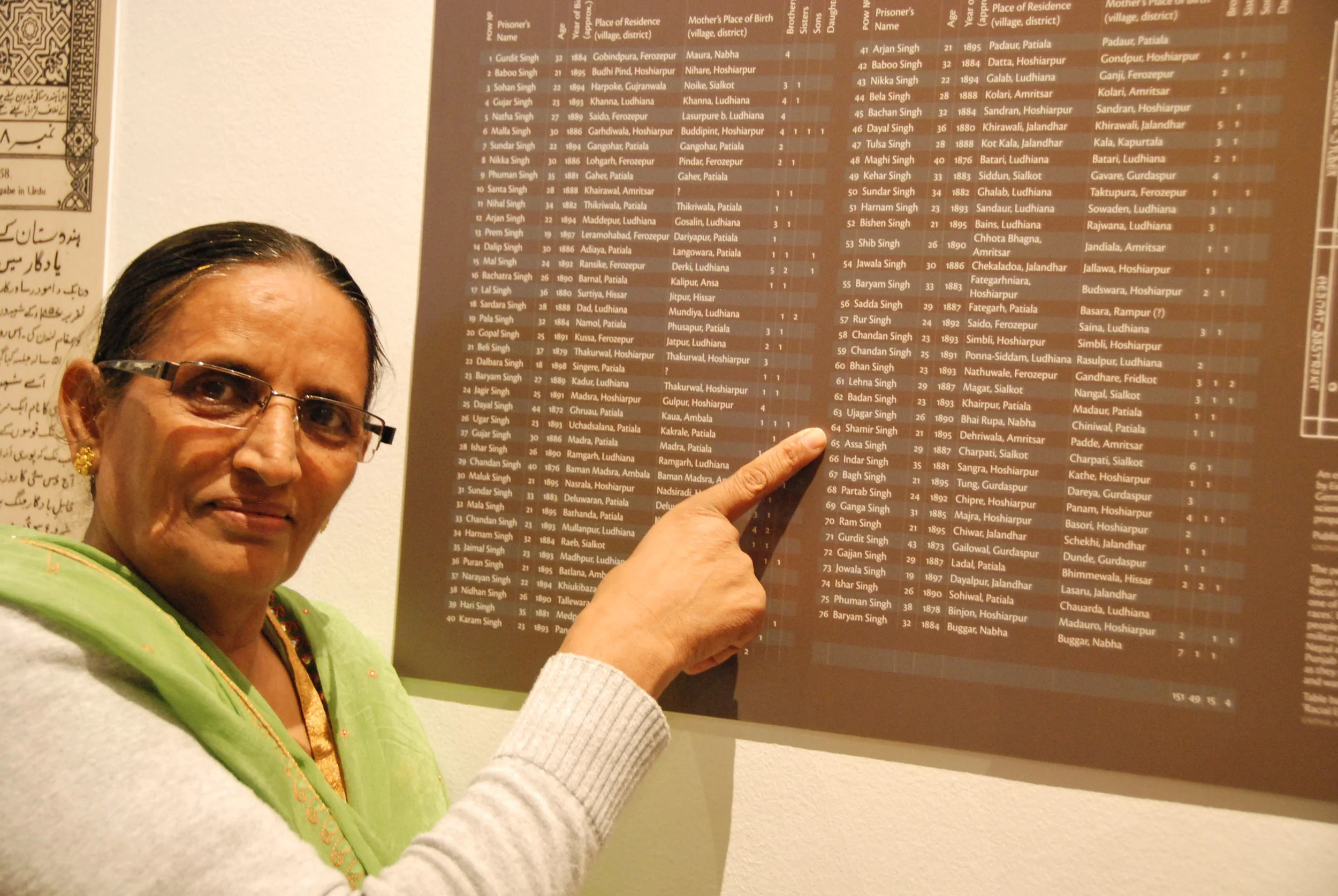Balvinder Kaur from Mumbai, India, made an emotional discovery on a visit to our exhibition ‘Empire, Faith & War’. In a wonderful twist of fate she discovered that her uncle, Shamir Singh (born c. 1895) from village Dehriwala in District Amritsar, was a prisoner of war interned in the Wünsdorf prisoner camp near Berlin.
His name and other details (including his age at the time, 21) were recorded for posterity by German scholar, Egon von Eickstedt, in 1916-17. Eickstedt had selected 76 Sikh prisoners for a bizarre study to explore their racial characteristics. Balvinder Kaur was overwhelmed with the connection she had made and wanted to share her experience with us.
The following is a translated transcript of her interview in which she discusses her soldiering uncle’s quiet and dignified demeanour:
My name is Balvinder Kaur. I have come here from Bombay. My maternal village is Dehriwala, in the district of Amritsar. This [pointing to the panel] is my my dad’s older brother, Shamir Singh.
He used to recite Sikh scripture (‘Gurbani’) a great deal and was always immersed in it. He did not talk that much. His wife’s name was Kartar Kaur. They did not have any children. He was from a farming Sikh family and his surname was Aujla. He immersed himself in scripture recitation all the time. He died around the 1980s. He was very old then. I was quite young at that time, so I do not know that much. He had one brother, and no one else. He did not have any children. I don’t know much. All I know is that he was very old.
I came here [to the exhibition] and suddenly I came across [on one of the exhibition panel, details of] the village of Dehriwala and Shamir Singh. I felt very happy. I felt proud that my own uncle’s name is mentioned here.
He was very tall, slim and used to have long, untied beard. He had long beard and used to tie a small yellow turban. It was a small turban, not very large. He barely used to speak. Even if close relative visited he did not talk much. He only used to say a few words and mainly recited from scripture. I was young so did not see him much.
He never looked up directly. Even when he used to speak, he always looked down. He rarely used to go to his fields. Most of the time he never went. His wife used to take care of the household. She used to manage household affairs and everything related to the farming side. He use to keep reciting from scripture and sometimes I have seen him ploughing the fields but even then he did not talk much.
He died some time near 1980 but I do not exactly remember which year it was.
Balvinder Kaur, 21 September 2014
To hear Balvinder Kaur talking about her uncle in Punjabi, visit our Spoken History page.
Picture credit: Taran Singh
